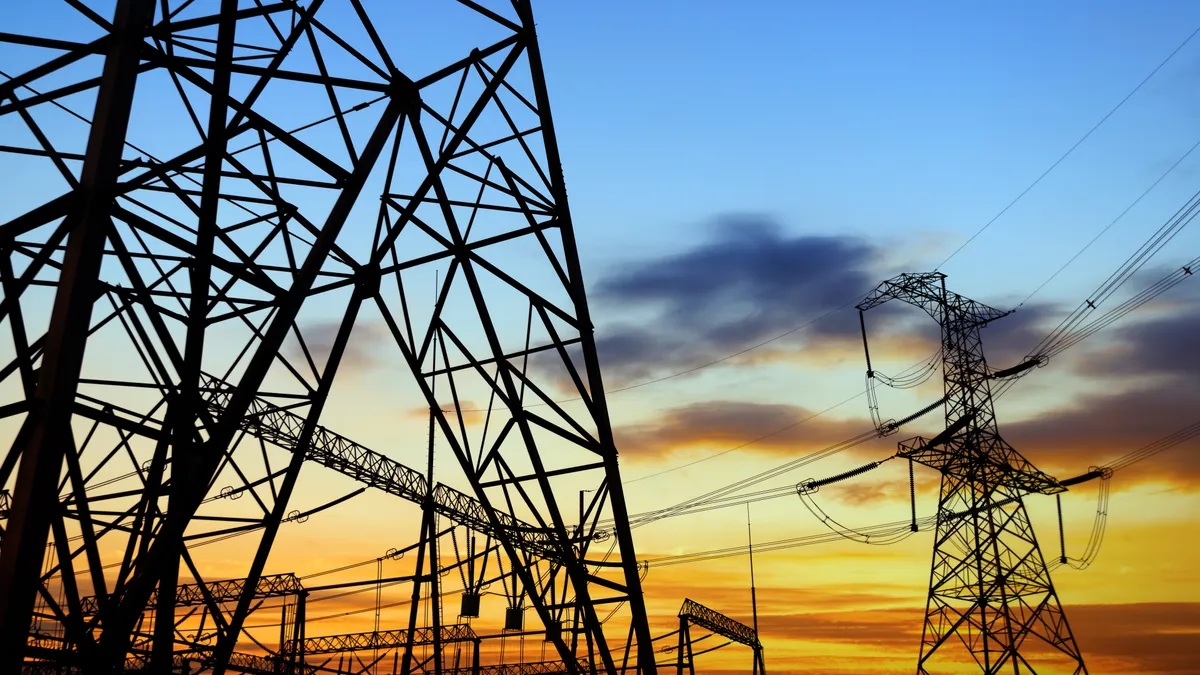Dive Brief:
- New Jersey electric companies, energy efficiency providers and conservation groups say a plan to reduce utility returns on equity (ROE) for efficiency investments will decrease the incentive to make those investments and could keep the state from achieving its clean energy goals.
- Staff of the Board of Public Utilities (BPU) on March 20 published the "Straw Proposal for New Jersey’s Energy Efficiency and Peak Demand Reduction Programs," which included a 100-basis point reduction to utility ROEs for energy-saving investments. The straw proposal aims to implement requirements of the state's Clean Energy Act of 2018, which requires electric utilities to achieve annual energy use reductions of 2% or greater within five years of the new rules being implemented.
- At a stakeholder meeting April 1, the New Jersey Utilities Association (NJUA), Natural Resources Defense Council (NRDC) and other groups criticized the ROE reduction, though they agreed it was an improvement over a previous proposal that included a 200-basis point reduction.
Dive Insight:
Stakeholders during the meeting discussed how utilities would recoup lower revenues due to energy savings, including the potential for revenue decoupling, and the opportunity to create a standing energy efficiency advisory group. But the lowered ROE for efficiency dominated talk, and appeared to have a range of groups on the same page.
Many stakeholders want to see no ROE reduction, reasoning that reducing a utility's return on efficiency investments make it less likely to spend on those resources.
"We prefer investments in energy efficiency over poles and wires," Eric Miller, director of NRDC's New Jersey Energy Policy, Climate & Clean Energy Program, told Utility Dive.
The reduced ROE "effectively nullifies any incentive to invest in energy efficiency," NJUA President Thomas Churchelow said during the stakeholder meeting. "Our members want to do energy efficiency but we have a fiduciary duty which provides that we cannot promote programs that do not generate recovery for lost revenues or investments."
The reduced ROE for efficiency "has nothing to do with how well a utility helps its customers save money," PSEG Vice President Karen Reif told stakeholders. She said the reduction was not authorized by the state's Clean Energy Act, and is "unprecedented" in the United States.
But stakeholders favoring the reduced ROE believe efficiency investments carry a lower level of risk for the utility.
"We obviously understand the need to compromise, but we very much disagree these programs carry the same level of risk as normal utility spending," said Stefanie Brand, director of New Jersey's Division of Rate Counsel. "They get contemporaneous recovery at their full weighted average cost of capital, and they do not have to wait for a rate case. There really is a reduction of risk. We thought the 200 basis point [reduction] reflected that."
The straw proposal also includes lost revenue adjustments for utilities, but Miller said revenue decoupling would be preferable because it "completely removes the throughput incentive that utilities have to sell more energy and allows customer energy rates to decrease if load grows."
NRDC is expecting electric load to grow as part of New Jersey's electric vehicle and building electrification goals. While Miller said the state's clean energy law would allow for decoupling to be undertaken in the straw proposal, that approach may have to wait.
"It doesn't look like they will move forward with decoupling now," he said. Staff has instead mentioned the possibility of taking the issue up in a utility rate case.
Dennis Hart, executive director of the Chemistry Council of New Jersey, warned during the meeting that decoupling would raise rates for companies that take on efficiency projects and could encourage them to relocate businesses outside of the state or country. The group represents chemical and pharmaceutical refineries and manufacturers.
"There's always a lot of conversation about what is the return to the utilities, and my opinion is there is not enough conversation about what is the return on the people actually doing the energy efficiency," Hart said. "If we really want to do energy efficiency, we have to guarantee that if a company ... invests in energy efficiency they're going to get a return on that as well. The last thing we want to have, is a company doing an energy efficiency project and through decoupling their rates go up."
NRDC's Miller also wants to see the BPU develop a permanent Energy Efficiency Advisory Group, rather than the five-member group in place now to assist in development of the straw proposal.
"We strongly believe in the permanent establishment of an energy efficiency advisory group, to actually weigh in meaningfully on efficiency program design and implementation," Miller said. Massachusetts has one such group in place, he said. New Jersey's current advisory group "has no formal power except to make recommendations, and no resources to undertake independent activity."
Comments on the straw proposal will be due April 13, though many stakeholders have asked for an extension. BPU staff say they are not intending to issue another straw proposal, and plan to make recommendations to state regulators in May.
That schedule envisions utilities making efficiency program filings in late summer or early fall, with programs commencing July 2021.















